12/1/2019
Higher Wages Are Here
Jennifer Zurko

This past July, the House of Representatives passed a bill that would raise the federal minimum wage to $15 incrementally from its current $7.25 by 2025. Along with the six-year phase-in, the bill includes a proposed study that would measure the impacts of increased wages partway through the implementation, which was a caveat requested by more moderate Democrats who worry that a higher minimum wage would hurt small businesses and rural areas that have a lower pay scale than urban areas.
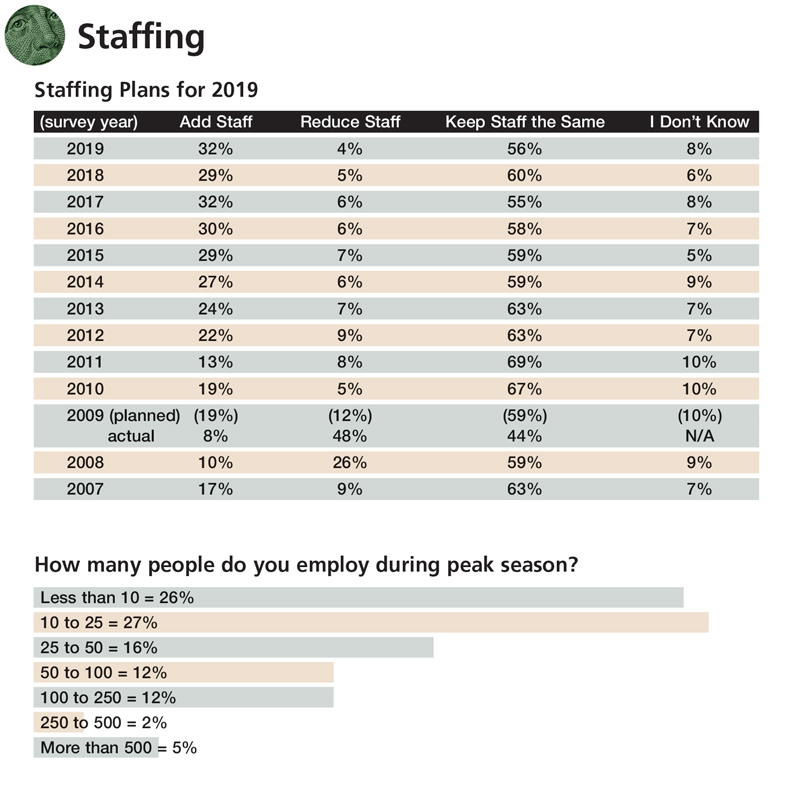 According to Senate Majority Leader Mitch McConnell, the bill will never be brought to the floor of the Republican-controlled Senate, so it’s not going to be made into law—at least not during the coming year. However, 30 states have recently passed minimum wage increase laws, with seven of those already passing $15 minimum wage hikes, not waiting for the federal government to make a nationwide mandate. Most have chosen phase-in types of bills and are states that include large metropolitan areas where the cost of living is higher, like California, New York and Illinois.
According to Senate Majority Leader Mitch McConnell, the bill will never be brought to the floor of the Republican-controlled Senate, so it’s not going to be made into law—at least not during the coming year. However, 30 states have recently passed minimum wage increase laws, with seven of those already passing $15 minimum wage hikes, not waiting for the federal government to make a nationwide mandate. Most have chosen phase-in types of bills and are states that include large metropolitan areas where the cost of living is higher, like California, New York and Illinois.
We know it’s been a major concern for many growers and retailers who’re already sweating about the lack of labor. But perhaps we’re in the shrug-your-shoulders-and-accept-your-fate phase because many people we talk to have already raised their wages—either because they have to (new $15 laws or competing for workers with other industries) or want to (incentivizes productivity or brings in a better pool of candidates).
Regardless, the data we have from our survey this year is starting to show this. Even compared to last year, respondents said that they’re paying more, especially for seasonal and full-time labor in regions like the East and West. Even some of the positions that are considered “skilled labor” are showing upticks in pay.
To go along with that, we noticed that more survey respondents said that they plan on adding more staff for the coming season. It’s the second highest total we’ve seen since 2007 when the Recession was gearing up.
So it was fortuitous when we decided to change this year’s survey essay question to ask: “Have you learned any tricks for writing an effective help wanted ad? Particular words, phrases or descriptions of the job?”
Some kept it simple: “Outside/hot/wet,” “free plants” and “include the pay rate.” Some said they avoid using the words “sweat” or “pulling weeds” because it turns people off. Others include the flexible hours, benefits and paid vacation they offer. And some lucky stiffs said they never have to advertise because workers seek them out.
And then we had those that were just blunt: “I wish I knew the tricks!” and “If anyone has better ideas of how to find good employees, let me know.”
Here are some other responses:
“Short and sweet, apply via email. Put wage in and location (in our case, rural). Avoid repeat questions.”
—
“In our type of business, it’s important to state that work is seasonal. It also helps to state that we speak Spanish.”
—
“Be completely clear and honest from the start, exactly what you’re looking for. You'll be amazed how much this helps!”
—
“List awards you’ve won. State positives, or why it’s fun or a good idea for coming to work. You can get this from other employees on why they’ve been coming to work here.”
—
“We use H-2A labor, so we get many of the same employees back each year. Merchandisers in stores, however, is the more difficult hire for our market with only a three-month-max busy season.”
—
“Use Indeed.com and include as many details as possible.”
—
“Signs out front seem to yield the best results.”
—
“We use employment services to help us find new hires and regularly promote from within.”
—
“We feel it’s most important to be very clear about the job description, but otherwise, no tricks!”
—
“Facebook seems to be the best place to post an ad.”
—
“Our help always comes from word-of-mouth; has been primarily high school and college kids, as well as a few retirees and moms.”
—
“Pay a little more, get a lot more!”
—
“Focus on opportunity for growth. I’m wondering if we need to call out the upper wage opportunity (we may be too modest).”
—
“[We] express how much fun it is.”
—
“If you want a specific skill, you need to be specific in the ad.”
—
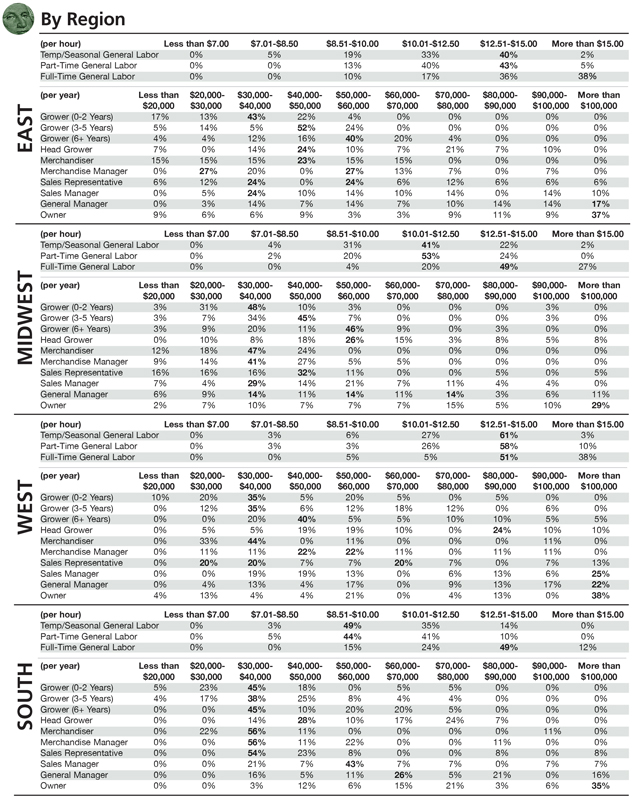
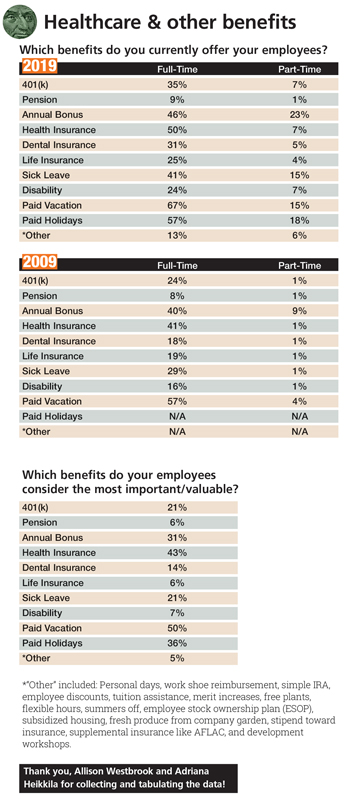
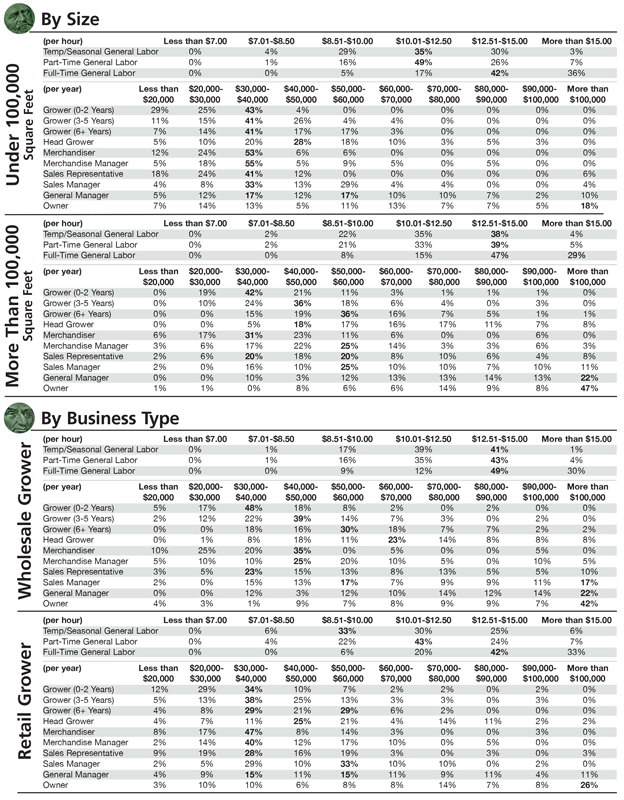
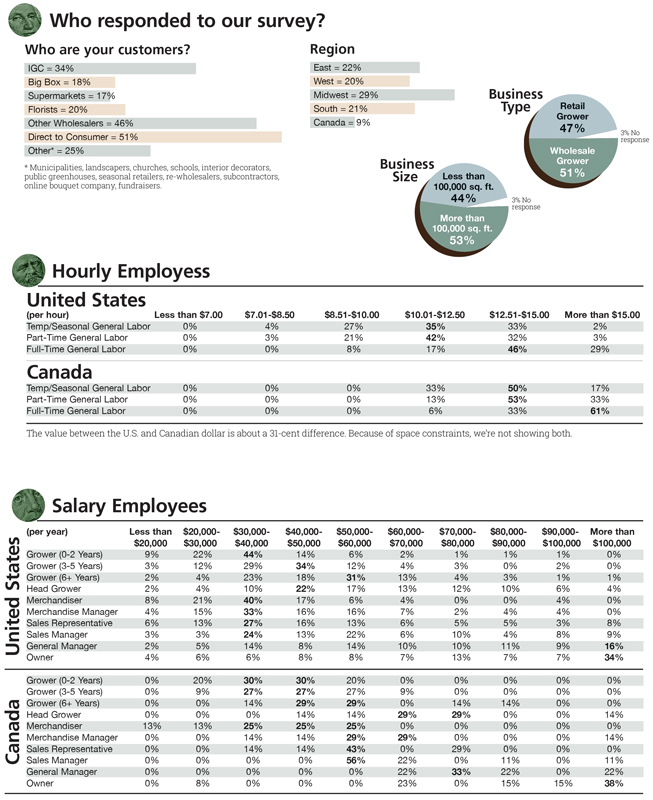
Setting the Tone for Hiring
Bob Zahra
Are you interviewing from a perch? In other words, not shoulder-to-shoulder, but instead looking down at the nervous, résumé-toting potential employee? Expecting a show-stopping, job-winning performance as you kick back and enjoy the moment? Anticipating a parade of eager young applicants, who can be expected to wait patiently for as long as necessary until a decision on whom to hire is ultimately reached? Bet it’s tough these days to secure the talent your company needs, especially the gifted talent ...
Proven history is still a better predictor of future performance than the formal candidate interview. And in a time of limitless opportunities for the topflight performer, it only makes sense to interview with wise, respectful deference to that future star of your company. Some things never change, as they say, and whether apparent or not, the candidate is interviewing your company, too, and attempting to envision what the future looks like as an employee:
1) Will personal contribution be recognized and appreciated?; 2) Is employment with your company held in high regard by family and friends?; 3) Does the geography work?; and 4) Is there enough compensation to pay the bills, put a little away and enjoy a nice life?
Just as the hiring authority is sensitive to clues revealed in the responses to interview questions, the candidate is as sensitive as a seismograph to every detail surrounding the interview. Does leadership work WITH people or does the company WORK people? The answer to that question, assimilated from interviews and in checking out the company, relates directly to the primary motivating factor above: “Will personal contribution be recognized and appreciated?” Potential employees check references on your company and it’s tough to overcome a negative reference.
There are NO employees in the big box and mass market, just partners, associates, team members, etc. Hokey as all get out? You bet it is, but the big box and mass market have declared with their words what they expect their respective workforces to be. You may not be there yet, you may not ever get there, but being partners/teammates/associates is the goal.
Is it really helpful to make a subordinate feel subordinate? This is the individual on whose shoulders the company is built, on whom the company is counting to embrace at least a portion of the business as if it were their own. The foundation for that level of commitment is established in the first interview with a candidate who’s weighing a next step for his or her future. GT
Bob Zahra is an executive search consultant with Florasearch, Inc., a certified personnel consultant, and past chair of the National Association of Executive Recruiters. He can be reached at (407) 320-8177 or bzahra@florasearch.com. www.florasearch.com.